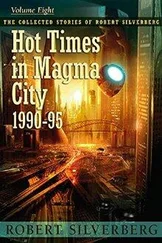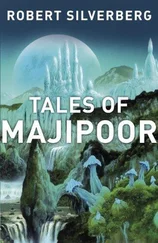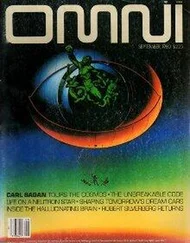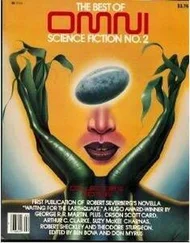Robert Silverberg - Schwartz Between the Galaxies
Здесь есть возможность читать онлайн «Robert Silverberg - Schwartz Between the Galaxies» весь текст электронной книги совершенно бесплатно (целиком полную версию без сокращений). В некоторых случаях можно слушать аудио, скачать через торрент в формате fb2 и присутствует краткое содержание. Год выпуска: 2009, ISBN: 2009, Издательство: Subterranean Press, Жанр: Фантастика и фэнтези, на английском языке. Описание произведения, (предисловие) а так же отзывы посетителей доступны на портале библиотеки ЛибКат.
- Название:Schwartz Between the Galaxies
- Автор:
- Издательство:Subterranean Press
- Жанр:
- Год:2009
- ISBN:978-1-59606-212-2
- Рейтинг книги:4 / 5. Голосов: 1
-
Избранное:Добавить в избранное
- Отзывы:
-
Ваша оценка:
- 80
- 1
- 2
- 3
- 4
- 5
Schwartz Between the Galaxies: краткое содержание, описание и аннотация
Предлагаем к чтению аннотацию, описание, краткое содержание или предисловие (зависит от того, что написал сам автор книги «Schwartz Between the Galaxies»). Если вы не нашли необходимую информацию о книге — напишите в комментариях, мы постараемся отыскать её.
Schwartz Between the Galaxies — читать онлайн бесплатно полную книгу (весь текст) целиком
Ниже представлен текст книги, разбитый по страницам. Система сохранения места последней прочитанной страницы, позволяет с удобством читать онлайн бесплатно книгу «Schwartz Between the Galaxies», без необходимости каждый раз заново искать на чём Вы остановились. Поставьте закладку, и сможете в любой момент перейти на страницу, на которой закончили чтение.
Интервал:
Закладка:
Cautiously, the third or fourth time he spoke with them, he expressed polite interest in their drug. They told him it enabled them to make contact with the central forces of the universe. He replied that there were such drugs on Earth, too, and that he used them frequently, that they gave him great insight into the workings of the cosmos. They showed some curiosity, perhaps even intense curiosity: reading their eyes was difficult and the tone of their voices gave no clues. He took his elegant leather-bound drug case from his pouch and showed them what he had: learitonin, psilocerebrin, siddharthin, and acid-57. He described the effects of each and suggested an exchange, any of his for an equivalent dose of the shriveled orange fungoid they nibbled. They conferred. Yes, they said, we will do this. But not now. Not until the proper moment. Schwartz knew better than to ask them when that would be. He thanked them and put his drugs away.
Pitkin, who had watched the interchange from the far side of the lounge, came striding fiercely toward him as the Spicans glided off. “What are you up to now?” he demanded.
“How about minding your own business?” Schwartz said amiably.
“You’re trading pills with those snakes, aren’t you?”
“Let’s call it field research.”
“Research? Research? What are you going to do, trip on that orange stuff of theirs?”
“I might,” Schwartz said.
“How do you know what its effects on the human metabolism might be? You could end up blind or paralyzed or crazy or—”
“—or illuminated,” Schwartz said. “Those are the risks one takes in the field. The early anthropologists who unhesitatingly sampled peyote and yage and ololiuqui accepted those risks, and—”
“But those were drugs that humans were using. You have no way of telling how—oh, what’s the use, Schwartz? Research, he calls it. Research.” Pitkin sneered. “Junkie!”
Schwartz matched him sneer for sneer. “Economist!”
The house is a decent one tonight, close to three thousand, every seat in the University’s great horseshoe-shaped auditorium taken, and a video relay besides, beaming his lecture to all Papua and half of Indonesia. Schwartz stands on the dais like a demigod under a brilliant no-glare spotlight. Despite his earlier weariness he is in good form now, gestures broad and forceful, eyes commanding, voice deep and resonant, words flowing freely. “Only one planet,” he says, “one small and crowded planet, on which all cultures converge to a drab and depressing sameness. How sad that is! How tiny we make ourselves, when we make ourselves to resemble one another!” He flings his arms upward. “Look to the stars, the unattainable stars! Imagine, if you can, the millions of worlds that orbit those blazing suns beyond the night’s darkness! Speculate with me on other peoples, other ways, other gods. Beings of every imaginable form, alien in appearance but not grotesque, not hideous, for all life is beautiful—beings that breathe gases strange to us, beings of immense size, beings of many limbs or of none, beings to whom death is a divine culmination of existence, beings who never die, beings who bring forth their young a thousand at a time, beings who do not reproduce—all the infinite possibilities of the infinite universe!
“Perhaps on each of those worlds it is as it has become here. One intelligent species, one culture, the eternal convergence. But the many worlds together offer a vast spectrum of variety. And now, share this vision with me! I see a ship voyaging from star to star, a spaceliner of the future, and aboard that ship is a sampling of many species, many cultures, a random scoop out of the galaxy’s fantastic diversity. That ship is like a little cosmos, a small world, enclosed, sealed. How exciting to be aboard it, to encounter in that little compass such richness of cultural variation! Now our own world was once like that starship, a little cosmos, bearing with it all the thousands of Earthborn cultures. Hopi and Eskimo and Aztec and Kwakiutl and Arapesh and Orokolo and all the rest. In the course of our voyage we have come to resemble one another too much, and it has impoverished the lives of all of us, because—” He falters suddenly. He feels faint, and grasps the sides of the lectern. “Because—” The spotlight, he thinks. In my eyes. Not supposed to glare like that, but it’s blinding. Got to have them move it. “In the course—the course of our voyage—” What’s happening? Breaking into a sweat, now. Pain in my chest. My heart? Wait, slow up, catch your breath. That light in my eyes—
“Tell me,” Schwartz said earnestly, “what it’s like to know you’ll have ten successive bodies and live more than a thousand years.”
“First tell me,” said the Antarean, “what it’s like to know you’ll live ninety years or less and perish forever.”
Somehow he continues. The pain in his chest grows more intense, he cannot focus his eyes; he believes he will lose consciousness at any moment and may even have lost it already at least once, and yet he continues. Clinging to the lectern, he outlines the program he developed in The Mask Beneath the Skin. A rebirth of tribalism without a revival of ugly nationalism. The quest for a renewed sense of kinship with the past. A sharp reduction in nonessential travel, especially tourism. Heavy taxation of exported artefacts, including films and video shows. An attempt to create independent cultural units on Earth once again while maintain ing present levels of economic and political interdependence. Relinquishment of materialistic technological-industrial values. New searches for fundamental meanings. An ethnic revival, before it is too late, among those cultures of mankind that have only recently shed their traditional folkways. (He repeats and embellishes this point particularly, for the benefit of the Papuans before him, the great-grandchildren of cannibals.)
The discomfort and confusion come and go as he unreels his themes. He builds and builds, crying out passionately for an end to the homogenization of Earth, and gradually the physical symptoms leave him, all but a faint vertigo. But a different malaise seizes him as he nears his peroration. His voice becomes, to him, a far-off quacking, meaningless and foolish. He has said all this a thousand times, always to great ovations, but who listens? Who listens? Everything seems hollow tonight, mechanical, absurd. An ethnic revival? Shall these people before him revert to their loincloths and their pig roasts? His starship is a fantasy; his dream of a diverse Earth is mere silliness. What is, will be. And yet he pushes on toward his conclusion. He takes his audience back to that starship, he creates a horde of fanciful beings for them. He completes the metaphor by sketching the structures of half a dozen vanished “primitive” cultures of Earth, he chants the chants of the Navaho, the Gabon Pygmies, the Ashanti, the Mundugumor. It is over. Cascades of applause engulf him. He holds his place until members of the sponsoring committee come to him and help him down: they have perceived his distress. “It’s nothing,” he gasps. “The lights—too bright—” Dawn is at his side. She hands him a drink, something cool. Two of the sponsors begin to speak of a reception for him in the Green Room. “Fine,” Schwartz says. “Glad to.” Dawn murmurs a protest. He shakes her off. “My obligation,” he tells her. “Meet community leaders. Faculty people. I’m feeling better now. Honestly.” Swaying, trembling, he lets them lead him away.
“A Jew,” the Antarean said. “You call yourself a Jew, but what is this exactly? A clan, a sept, a moiety, a tribe, a nation, what? Can you explain?”
“You understand what a religion is?”
“Of course.”
Читать дальшеИнтервал:
Закладка:
Похожие книги на «Schwartz Between the Galaxies»
Представляем Вашему вниманию похожие книги на «Schwartz Between the Galaxies» списком для выбора. Мы отобрали схожую по названию и смыслу литературу в надежде предоставить читателям больше вариантов отыскать новые, интересные, ещё непрочитанные произведения.
Обсуждение, отзывы о книге «Schwartz Between the Galaxies» и просто собственные мнения читателей. Оставьте ваши комментарии, напишите, что Вы думаете о произведении, его смысле или главных героях. Укажите что конкретно понравилось, а что нет, и почему Вы так считаете.












